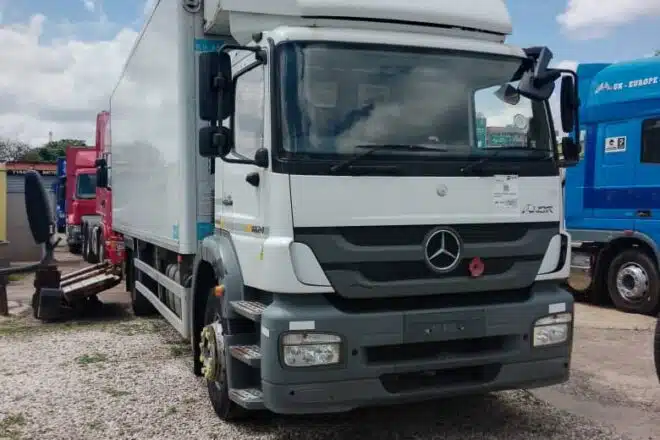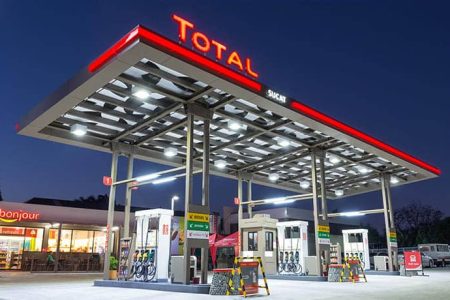Quick Take
In today’s rapidly evolving automotive market, the rise of online car sales is challenging traditional car dealerships like never before. With consumers increasingly turning to digital platforms for their vehicle purchases, dealerships face the pressing question: will they adapt and thrive in this new landscape, or will they become obsolete? This shift brings both opportunities and challenges, reshaping how cars are bought and sold. In this analysis, we’ll explore how car dealerships are responding to the digital revolution, the pros and cons of their evolving role, and what the future might hold for these long-standing institutions.
Break Down
The future of car dealerships is a hot topic, especially as the automotive industry undergoes significant changes due to digital transformation. Here’s a deeper analysis of how car dealerships are adapting to the rise of online car sales and whether they will remain relevant in the future:
- The Shift to Online Sales
E-commerce Growth: With the increasing popularity of e-commerce, consumers are becoming more comfortable making large purchases online, including cars. Platforms like BE FORWARD, SBT Japan, Pazengo and Tesla’s direct-to-consumer model allow customers to browse, purchase, and even finance vehicles without ever stepping foot in a dealership.
Virtual Showrooms: Many dealerships are investing in virtual showrooms, where potential buyers can explore car features, compare models, and even customize their vehicles online. This immersive experience can replicate the in-person visit, allowing customers to feel more confident in their purchase decisions.
Home Delivery and Test Drives: To compete with the convenience of online car sales, traditional dealerships are offering home delivery services and at-home test drives. This hybrid approach merges the online experience with the physical aspect, providing the best of both worlds for customers. - The Role of Technology
Digital Tools: Dealerships are integrating digital tools like AI-driven chatbots, virtual assistants, and personalized marketing to enhance customer engagement online. These tools can guide potential buyers through the purchasing process, answer questions, and recommend vehicles based on user preferences.
Data-Driven Decisions: With access to vast amounts of consumer data, dealerships can now make more informed decisions about inventory, pricing, and marketing strategies. Predictive analytics helps them anticipate trends and adapt to changing consumer behaviors quickly.
Financing and Trade-Ins Online: Many dealerships have moved the financing process online, allowing customers to apply for loans, get pre-approved, and even complete trade-ins digitally. This streamlines the buying process and reduces the need for lengthy in-person negotiations. - The Changing Consumer Behavior
Demand for Convenience: Modern consumers value convenience and time-saving measures. The ability to purchase a car online, arrange financing, and have it delivered to their doorstep aligns with these expectations. Dealerships must adapt to this shift by offering seamless online experiences that complement their in-person services.
Transparency and Trust: Online reviews and ratings have made transparency more critical than ever. Customers expect honest pricing, clear communication, and no hidden fees. Dealerships that build trust through transparency and excellent customer service, both online and offline, are more likely to retain loyal customers. - The Role of Physical Dealerships
Experiential Centers: Physical dealerships may evolve into experiential centers where customers can interact with vehicles in a more immersive environment. Instead of focusing solely on sales, these centers might emphasize test drives, vehicle customization, and showcasing the latest technology.
Service and Maintenance Hubs: As more aspects of the car-buying process move online, dealerships may shift their focus to service and maintenance. Offering exceptional after-sales service can become a key differentiator in retaining customers.
Community Engagement: Dealerships that engage with their local communities through events, sponsorships, and partnerships can create a strong brand presence. Being a trusted local business can help dealerships remain relevant despite the rise of online competitors. - Challenges and Opportunities
Competition with Direct Sales Models: Brands like Tesla, which sell directly to consumers without dealerships, pose a significant challenge. Traditional dealerships must find ways to offer unique value propositions that online-only models cannot match.
Regulatory Environment: In some regions, regulations still require vehicles to be sold through dealerships, which can protect their business model. However, these regulations are evolving, and dealerships must be prepared to adapt.
Opportunities for Growth: Dealerships that embrace the digital shift and invest in online platforms, digital marketing, and customer experience improvements can not only survive but thrive. By combining the best aspects of online and offline experiences, they can appeal to a broader range of customers.
Pros and Cons:
When analyzing the future of car dealerships in the context of the rise of online car sales, here are the key pros and cons:
Pros:
Personal Interaction:
Pro: Many customers still value face-to-face interaction, the ability to see, touch, and test drive vehicles before making a purchase. Dealerships provide a hands-on experience that online platforms can’t fully replicate.
Immediate Availability:
Pro: Customers can drive away with their new vehicle the same day, unlike online purchases that may involve shipping times.
Service and Maintenance:
Pro: Dealerships often provide post-sale services like maintenance and repairs, building long-term customer relationships and ensuring repeat business.
Trade-Ins and Financing:
Pro: Dealerships offer in-person trade-in evaluations and financing options, allowing for quick and often easier transactions compared to the online process.
Community Presence:
Pro: Local dealerships often have strong ties to their communities, hosting events and offering a sense of trust and reliability that online platforms may lack.
Cons:
Convenience:
Con: Online platforms offer unmatched convenience, allowing customers to browse, purchase, and finance vehicles from the comfort of their homes, which can make physical visits to dealerships seem like a hassle.
Pressure Sales Tactics:
Con: Some customers find the traditional dealership experience stressful due to aggressive sales tactics, preferring the low-pressure environment of online shopping.
Price Transparency:
Con: Online platforms often provide more transparent pricing, while dealership prices can be more opaque, leading to mistrust or lengthy negotiations.
Operational Costs:
Con: Dealerships have higher overhead costs (e.g., property, staff, inventory) which can lead to higher prices for consumers compared to online-only sellers.
Limited Online Presence:
Con: Dealerships that fail to develop a strong online presence may struggle to compete with digital-first platforms, especially as more consumers shift to online shopping.
Summary: Will Car Dealerships Survive?
Car dealerships, like a classic car with a never-ending engine, aren’t going away just yet. While online sales are zooming ahead, dealerships that rev up their digital skills will keep cruising smoothly. They still offer the hands-on perks like test drives, immediate vehicle pickup, and that extra car freshener you didn’t ask for but didn’t know you needed.
On the flip side, online platforms win with their unbeatable convenience, lack of pressure, and transparent pricing. Dealerships also have to deal with higher costs and a possible lack of online sparkle. To stay in the game, dealerships need to embrace the digital age and show off their unique strengths. Otherwise, they might end up in the slow lane, while online competitors speed off into the sunset.
Serious about buying/selling?
Whether you decide to visit the dealership in-person or the internet, Pazengo makes it possible for both—feel free to explore options here!
And if you are looking to sell your car? Sell it on Pazengo











